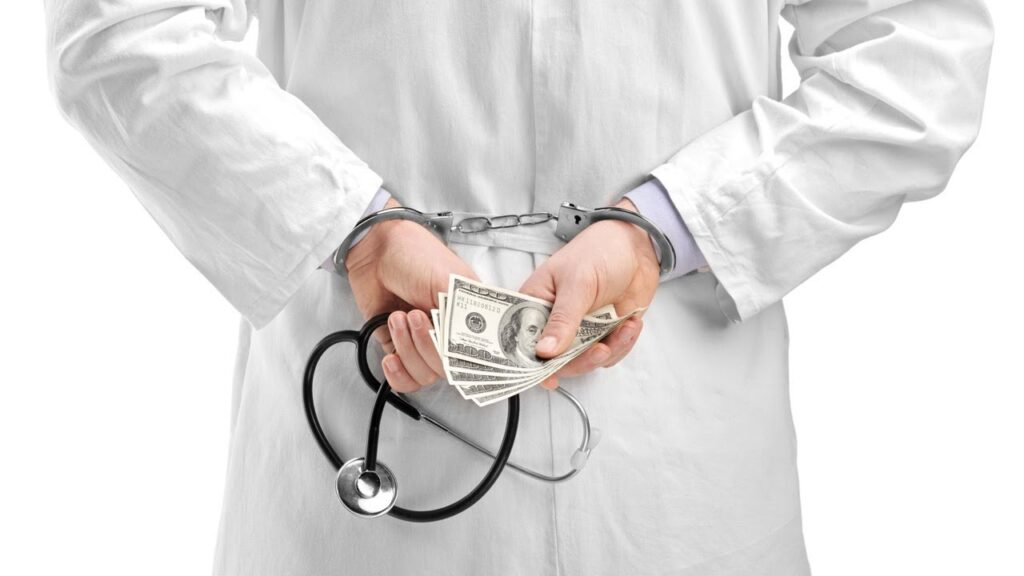Table of Contents
- What Is Medicare and Medicaid Fraud?
- Common Types of Medicare and Medicaid Fraud
- Signs of Potential Fraud
- Steps to Take If You Suspect Fraud
- Reporting Fraud Anonymously
- Protective Measures for Whistleblowers
- Impact of Fraud on the Healthcare System
- Relevant Case Studies and Outcomes
Recognizing Medicare and Medicaid fraud involves being alert to signs such as billing for services not provided, overcharging, or offering kickbacks. Unusual patterns in medical bills or pressure to receive unnecessary treatments can also indicate fraud. To report, gather detailed information, including dates, names, and descriptions of suspected fraud, and contact the appropriate authorities, such as the Office of Inspector General or state Medicaid offices. Reporting helps protect public funds and ensures the integrity of healthcare programs.
What Is Medicare and Medicaid Fraud?
Medicare and Medicaid fraud involves intentional deception or misrepresentation by a healthcare provider or beneficiary to receive unauthorized benefits or payments. Such fraudulent activities compromise the integrity and sustainability of these essential programs, funneling much-needed resources away from legitimate patient care. If you’ve ever wondered what is Medicare fraud, it encompasses a myriad of deceptive tactics crafted explicitly to secure unwarranted financial gains at the expense of the healthcare system.
Common Types of Medicare and Medicaid Fraud
Billing for Services Not Rendered
This fraudulent practice occurs when healthcare providers bill Medicare or Medicaid for services never provided to patients. Often, these schemes involve submitting fraudulent paperwork and records, making it appear that services were rendered when, in reality, they were not. This deceptive activity results in excessive costs to the healthcare system and can go undetected for long periods if vigilance is not exercised.
Upcoding Services
Billing for a more costly service or operation than was done is known as upcoding. For instance, a provider might conduct an essential office visit but bill for a comprehensive, higher-cost consultation. This may seem like an innocuous error, but it is a calculated move to inflate reimbursements unjustifiably. Upcoding exacerbates the financial strain on Medicare and Medicaid, leading to greater scrutiny and potential delays in genuine claims processing.
Kickbacks and Bribery
Kickbacks and bribery occur when individuals receive money or gifts in return for referring patients or services within the healthcare network. Often, these illicit incentives undermine the quality and impartiality of patient care, as decisions may be influenced by financial gain rather than medical necessity. This practice not only distorts the professional ethics of healthcare providers but also threatens the trust and safety of patients.
Unbundling Services
Unbundling is a fraudulent billing practice where providers bill multiple codes for individual procedures that should be covered under a single billing code. For example, a surgical procedure generally billed as one comprehensive service is broken down into separate parts, each billed individually. This deceptive tactic artificially inflates costs and burdens the system with excessive and unnecessary expenses.
Medically Unnecessary Services
This fraud happens when healthcare providers recommend and bill for services, tests, or procedures that are not medically necessary for the patient’s condition. These needless treatments, funded mainly through profit, add many expenditures to Medicare and Medicaid and take money away from required and appropriate care. Furthermore, patients may face risks from unnecessary medical interventions, complicating their health outcomes.
Signs of Potential Fraud
Recognizing the signs of Medicare and Medicaid fraud is crucial for providers and beneficiaries. One key indicator could be unexplained charges on Explanation of Benefits (EOB) statements. If there are discrepancies between the recorded and received medical services, it should prompt immediate investigation. Additionally, frequent and unnecessary medical tests that do not correlate with a patient’s medical history might signal fraudulent activity. By staying vigilant and informed, individuals can help detect and address fraud at its inception.
Steps to Take If You Suspect Fraud
If you suspect fraud, it is paramount to act swiftly and meticulously. Begin by documenting all relevant details, including names, dates, and the nature of the fraudulent activities. These records are invaluable when you proceed to report the suspect activities. Once documentation is in place, contact the appropriate authorities. Agencies such as the Office of Inspector General (OIG) or your state’s Medicaid Fraud Control Unit (MFCU) are equipped to handle such complaints efficiently. You may significantly contribute to preserving the integrity of our healthcare system by carrying out these actions.
Reporting Fraud Anonymously
Reporting fraud can be daunting, especially if one fears retaliation. Fortunately, many government agencies offer channels for anonymous reporting, ensuring the complainant’s identity remains protected. These mechanisms facilitate the reporting process and encourage more individuals to come forward. To understand more about anonymous reporting, visit the OIG website, which provides comprehensive information on reporting fraud safely and securely.
Protective Measures for Whistleblowers
Whistleblowers play an indispensable role in exposing fraud and must be well-versed in their rights and protections. The Whistleblower Protection Act offers various safeguards against retaliation, whether adverse employment actions or other punitive measures. Additionally, recent policies and laws have enhanced protections for whistleblowers across multiple sectors, making it increasingly safer for individuals to report fraudulent activities without fear of retribution.
Impact of Fraud on the Healthcare System
Medicare and Medicaid fraud has far-reaching consequences that extend beyond immediate financial losses. Fraudulent activities result in increased healthcare costs, divert critical resources from legitimate patient care, and erode public trust in these essential programs. According to a National Health Care Anti-Fraud Association report, healthcare fraud costs the nation tens of billions of dollars annually. This economic drain necessitates rigorous detection and prevention efforts to preserve the efficacy and integrity of our healthcare institutions.
Relevant Case Studies and Outcomes
Case studies from real-world situations provide priceless insights into the identification, consequences, and resolution of Medicare and Medicaid fraud. For instance, a comprehensive investigation in Florida uncovered a clinic that had fraudulently billed millions of dollars. The case concluded with severe penalties and prison sentences for those involved, underlining the significant repercussions of fraudulent activities. These case studies highlight the necessity for constant vigilance, robust reporting mechanisms, and stringent legal consequences to maintain the healthcare system’s integrity and trustworthiness.

Asad Arshad, a prolific author of over 50+ websites across various niches, is open to collaboration opportunities. 🌐 For guest posts, reach out to him to benefit from his vast expertise and connect with a diverse audience. 📬




